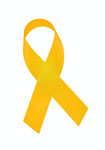 Who said there were no herbal cures for breast cancer? A new study has found that phytoestrogens, plant compounds, may have a cancer protective effect. The ones in question here are “lignans” and the target is breast cancer. The answer: it just might help you survive the disease.
Who said there were no herbal cures for breast cancer? A new study has found that phytoestrogens, plant compounds, may have a cancer protective effect. The ones in question here are “lignans” and the target is breast cancer. The answer: it just might help you survive the disease.
Phytoestrogens mimic the actions of estrogen in the body and have been linked to many health benefits. The most important type of phytoestrogens in our diet is lignan. Lignans come in seeds (especially flaxseeds), as well as in wheat and vegetables. The body turns these lignans into another lignan, enterolactone, which is then absorbed.
From 2002 to 2005, researchers took blood samples from 1,140 women who had been diagnosed with postmenopausal breast cancer. After six years, they compared levels of enterolactone with how the disease was progressing.
They found that women with the highest blood levels of enterolactone had a 40% lower risk of death than those with the lowest levels. That is pretty huge. And the news extended for those women who suffered the dreaded metastis and had other tumors as well. It still held up: the highest enterolactone levels related to the most positive disease progression.
This is clear evidence that shows lignans could lower not only your risk of breast cancer — but also your risk of death if you get the disease. Older studies had tried to determine lignan intake through surveys. But since there are unreliable elements involved, they went straight to the blood levels of enterolactone — the mammalian lignan that plant lignans turn into.
Studies on cells and animals have already provided evidence suggesting that the substance has an influence on cancer growth that has nothing to do with estrogen. There is something else about enterolactone. That something, most importantly, means that it promotes cell death and stops the creation of new blood vessels.
What we can do is keep a diet rich in whole grains, seeds and vegetables. That way, along with the great nutrients found in those items, you take in enough lignans. Another observation that flows with this study is that Asian women are less frequently affected by breast cancer. They are also the ones who get high levels of soy in their diet, which is high in phytoestrogens.
